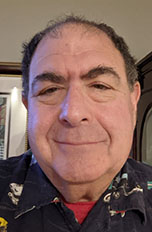By Ben Dishman, PharmD

SAN DIEGO — During this Thanksgiving’s COVID burnout, many people appear to have forgotten the meaning of tikkun olam, a Jewish concept defined by acts of kindness to perfect or repair the world.
My wife Robin and I sit together nostalgically remembering Thanksgivings pasts with our extended family. This year we patiently wait for our Zoom session to begin. But 50 million of our fellow citizens seem to care more for their own needs than the community at large.
My wife and I are in the medical field. My wife works on the front lines at a large medical center and watches the suffering that COVID inflicts. Not just to the patients and their families but to the front line workers risking their lives to help others. In the evening we watch the news showing these dedicated doctors, nurses and support staff, exhausted both physically and mentally, literally begging us to stay home this Thanksgiving. The Surgeon General, the President-elect and many of our states’ governors also warn us not to make matters worse. They are ignored by a huge percentage of the population.
President Trump accomplished some good things, but he also showed us how principles of decency can be abandoned for one’s own self-interest I don’t want to get too political but 80 million individuals voted against Mr. Trump. I think a high percentage did so because he failed to take the advice of the scientific community that tried to advise him.
How many of those who voted for President-elect Joe Biden chose to abandon the scientific warnings that prompted their vote and traveled to visit their families? I feel real pain in my soul for those who did so. I worry about those on the front lines and the families that will suffer loss.
I think we all need to consider the term tikkun olam and live our lives by thinking of others ahead of our own needs.
*
Ben Dishman is a retired pharmacist who specialized in prescribing medicines for patients with mental illnesses. He is the author of I Can Treat That Well…Maybe? detailing how pharmaceuticals impact such mental impairments as post-traumatic stress, bipolar, schizophrenia, and attention deficit disorder.